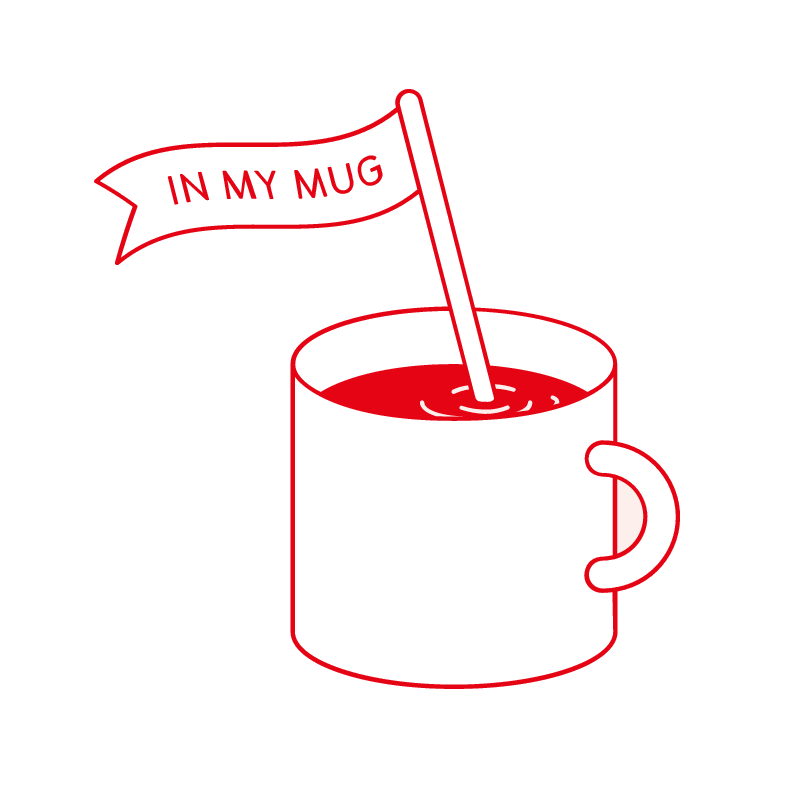Episodes

Saturday Aug 22, 2020
Episode 615: Nicaragua Finca Limoncillo Washed Red Pacamara Peaberry
Saturday Aug 22, 2020
Saturday Aug 22, 2020
The story of Hasbean and Finca Limoncillo is a long and exciting one - we've been working together for 13 years now! A bakers' dozen of coffee harvests shared between Matagalpa and Stafford make us very happy customers. I've been telling the story of this relationship for many years now and I don't intend to stop any time soon because it's such a big, big, big relationship for me 🌟 So much of where we are today has come from this relationship. I'm really proud of everything that's happened in the past, and super excited for where we can go in the future.
Limoncillo (and a handful of other fantastic farms) are owned by Dr. Erwin Mierich. Having previously lived and worked in the USA, he returned to Nicaragua in the mid-1990s. He explained, "While I was living in the United States, I worked as a gynaecologist, but then I had to come back to Nicaragua and lead this farm. Coffee has been my passion since I was a little boy". In the years we have worked together Erwin has visited Stafford many times, and it's always a pleasure to have him around. Last time he was visiting we ended up at a Weird Beard tap takeover in Manchester, talking to two Weird Beards about crazy brewing/coffee farming ideas! A coffee from Finca Limoncillo (the 'Funky Red Pacamara') is used in two of Weird Beard's beers: Black Perle and Double Perle, both of which are mighty delicious beers! A fitting collaboration to evolve from our continued business dealings when you consider how much time the family have dedicated to showing me how Latin American people like to party! On my very first visit to Nicaragua, the two people who showed me around were Erwin Jr and Steve Mierisch, the sons of the farmer. It was really cool, lifelong friends were made, and they taught me a lot about coffee production in the region.
Our relationship with Finca Limoncillo began in 2007, and back then we were buying their delicious coffee as part of a buying group. I cupped the coffee and instantly loved it - I knew I had to have it. It was a wonderful surprise to discover after the auction closed that it was owned by a family in Nicaragua who were already good friends of mine, and indeed probably the only people I knew from the whole country! The following year I visited the farm with our Nicaraguan importers and through my phenomenal Steve Pester Powers I got them to agree to bring the coffee into the UK for us (probably just to stop the flow of emails and phone calls from that annoying ginger bloke!)
A few years ago we were notified by the importers that they would not be buying the coffee again (for reasons other than the cup quality) which led to some frantic phone calls on my part, and a dig down the back of the sofa for enough loose change to fund buying 12 months' worth of coffee all in one go. There were many, many obstacles in the way of doing this deal, but we were lucky in that we were able to pull everything together in a very short amount of time. The upside of all of this is that we now work directly with Finca Limoncillo instead of going via anyone else. This coffee has gone from a one-off Cup of Excellence buy to a fantastic long-term relationship that I'm so very proud to have.
Finca Limoncillo is located in the Matagalpa region of Nicaragua and it's a whopping 171 hectares in size, which is heckin chonky! 109 hectares of this is used for coffee cultivation, with the remainder used to raise cattle and horses, and left to natural woodland. The family have heaps of policies and initiatives to make everything as sustainable as possible on this vast farming area: their use of chemicals is minimal, and the impact on the environment is always minimised by careful and considerate land management.
It's owned and run by the Mierisch family who are, by now, very close friends, and well-respected producers in Nicaragua. They're known for their experimental processing, varietal work, and exceptional coffee. The family employ over 3000 staff during the harvest, and at Limoncillo over 60 families live on the farm full time. They are seriously loved by the guys who work for them, more than any other producer we buy from there is genuine love and respect between the family and their workers. The fact that the family are our friends helps us drill down into the details of what they do for the people who work for them. This information continues to prove to me that good people grow good coffee. My last visit was February this year (right before the world went into lockdown!) and it was truly memorable - myself and Joanna (of Drop Coffee fame) sat up with Eleane until 2 am chatting and drinking rum together... the farm visit the next morning was a very quiet one! Luckily Limoncillo is a beautiful location, it boasts nine waterfalls within the farm, which is exactly the sort of place you want to be when you've had too much fun with friends the night before.
On the farm, the family:
- The employers pay their staff 30% more than what is typical minimum wage, as well as:
- Provide free housing for 60 families on their farms
- Provide free electricity and running water for their homes
- Provide free food for all workers
- Have free daycare facilities for families to use
- Provide free health care facilities on the farms
- Employee on-site teachers who educate their staff and teach other skills such as pottery and weaving. The goal is to help staff diversify their skills. The teachers are also paid twice the wages they would receive in the cities.
This year we have purchased 9 phenomenal lots from Limoncillo (that meanie Roland wouldn’t let me buy as many as I wanted to!), which makes up a total of 21 from the Mierisch family's farms combined - 19 Nicaraguan and 2 Honduran. This particular lot is a Pacamara Peaberry.
As well as being a big ol' Pacamara, this is also a lil' ol' Peaberry; a thing that's normally big is a little smaller than you might expect. It's an interesting mix of unusual sizing that I hope you'll enjoy.
Normally the seed of the coffee fruit grows into the green bean that we all know and love from two fertilised seeds inside each fruit, but sometimes things are a little different and a Peaberry is born. When only one of the two seeds is fertilised, it produces a smaller bean that looks like a shrunken version of what we'd normally know as a coffee bean, and that's because only one seed has grown instead of two.
Some say Peaberry coffees are sweeter and more delicious than their regular cousins; some people even come to us specifically looking for these coffees because they crave them so much! I'll let you be the judge.
I get a big, big hit of juicy sultanas here with a tropical edge of pineapple to it. As it cools it becomes really creamy, but with a biscuity edge too which makes me think of a slice of cheesecake. On the finish is the perfect finishing touch to that - a sliver of dark chocolate.
- Country: Nicaragua
- Municipality: Yasica Norte
- Region: Matagalpa
- Farm name: Limoncillo
- Producers: The Mierisch family
- Farm size: 171 hectares
- Coffee growing area: 109 hectares
- Altitude: 1,200 m.a.s.l.
- Varietal: Red Pacamara Peaberry
- Processing method: Washed
CUPPING NOTES
Sultana, cheesecake, dark chocolate
Clean cup: (1–8): 6.5
Sweetness: (1–8): 6.5
Acidity: (1–8): 6
Mouthfeel: (1–8): 6.5
Flavour: (1–8): 8
Aftertaste: (1–8): 6
Balance: (1–8): 6
Overall: (1–8): 7
Correction: (+36): +36
Total: (max. 100): 88.5
Roast Information
Medium-to-medium-dark – Keep the pace pretty steady, nothing too slow or too quick. When you get to crack, let it slow a little to help with development, but don't overdo it. Then you're looking for the very first pops of second on the drop, no more.
Brewing Tip
Pacamaras have a very unique size, density and structure, so don't expect them to grind like any other coffee. As this is a Pacamara Peaberry, it's also different to a normal Pacamara #tricky
I find going a little finer than I normally would and allowing more time for the grinder to get its teeth into the bigger beans often lead to delicious results. Don't push the grind quite as far as you would for a regular Pacamara, but still make sure to tweak what you're doing to help this coffee show off its natural awesomeness.

